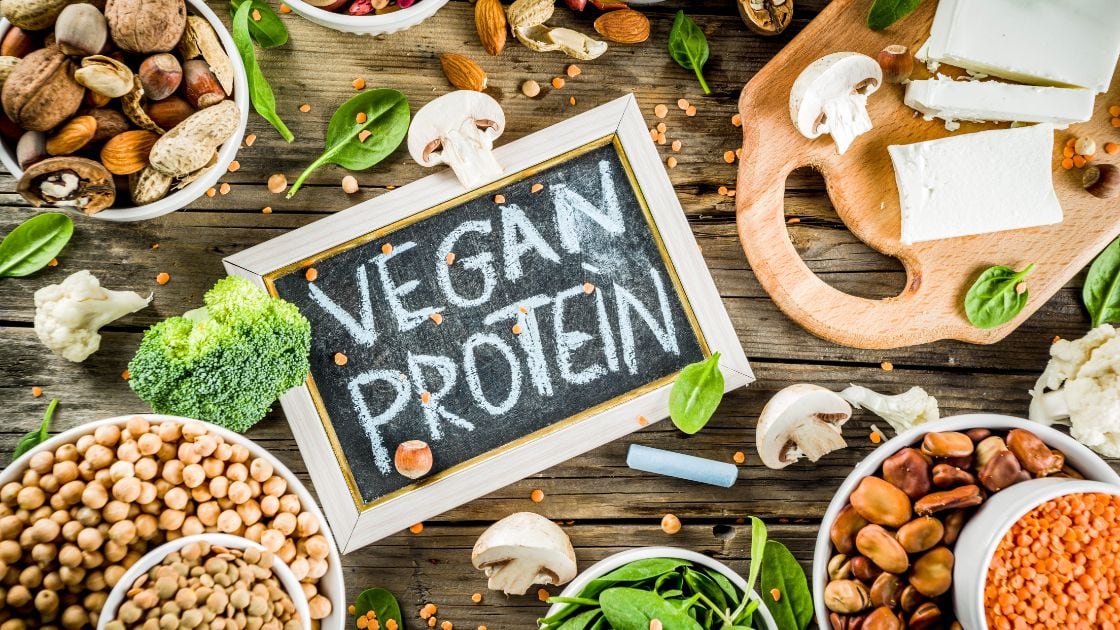The vegan-cruelty-free movement is gaining momentum – The vegan lifestyle is all about meeting your protein needs through a plant-based diet without relying on any animal products at all. That’s right; no meat, no fish, no dairy. The traditional belief that animal proteins are denser seems so dated now.
But exactly how easy is it to substitute your meaty proteins? Is there even high protein vegan food readily available?
Fortunately, there are several vegan protein sources that can meet your needs, help you build muscle, recover after an intense workout, and helps you shed a few pounds in the process.
In this blog, we will discuss the best high protein vegan food sources for vegans, how much protein they contain, and some tips on how to incorporate them into your diet. So read on and get to know some of the top 10 sources of high-protein vegan food (and it won’t cost you a fortune either!)
How Much Protein Do We Need?
Before we take a look at how much protein we need, let’s first consider why we need it. Your body needs protein like it needs oxygen – it performs endless bodily functions. Your muscles need it to stay strong, and your organs and skin demand it to stay healthy.
The immune system can’t produce antibodies without it, and fat metabolism can’t take place in its absence. It is of little wonder that the Greek meaning of protein translates to “primary.”
Now that we know why protein is so important, we can look at just how much we need on a daily basis. The average adult, according to the Dietary Reference Intake Report, needs about 0.36 grams of protein per pound of body weight. However, these recommendations are based on a sedentary lifestyle and are just enough to keep you healthy. Physically active adults will have to adjust their intake accordingly.
A daily protein diet that consists of 25% to 30% of your daily calories has been shown to boost metabolism significantly. With a bit of careful planning and research into high-protein vegan food, a vegan-only diet can certainly help you hit these digits
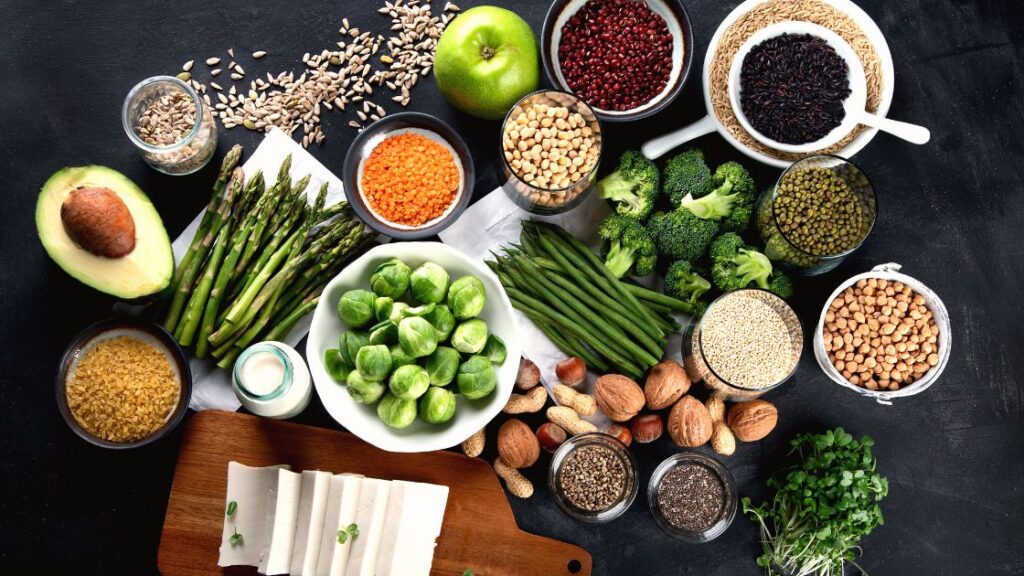
What is Vegan Protein?
Many people are unaware that vegan foods can be high in protein. This is why it’s important to educate yourself on the subject and explore different sources of high-quality protein. It’s important to seek out nutrient-dense plant-based foods when looking for sources of protein. This will help ensure that you’re getting all the essential amino acids your body needs.
When it comes to plant protein, there’s no shortage of options. In fact, many of these sources come with great benefits, such as being plant-based and environmentally friendly. To make the best choices for your vegan diet, be sure to check out these top 10 sources of high-quality vegan protein.
Some of these include legumes (chickpeas, black beans), tofu, grains (think quinoa and amaranth), nuts and seeds like almonds… So, whatever your protein needs may be – vegan or not- these sources will have you covered!
Best Vegan Protein Sources
If you’re looking for high-quality, high-protein vegan food, these plant-based sources will keep you sated.
Lentils
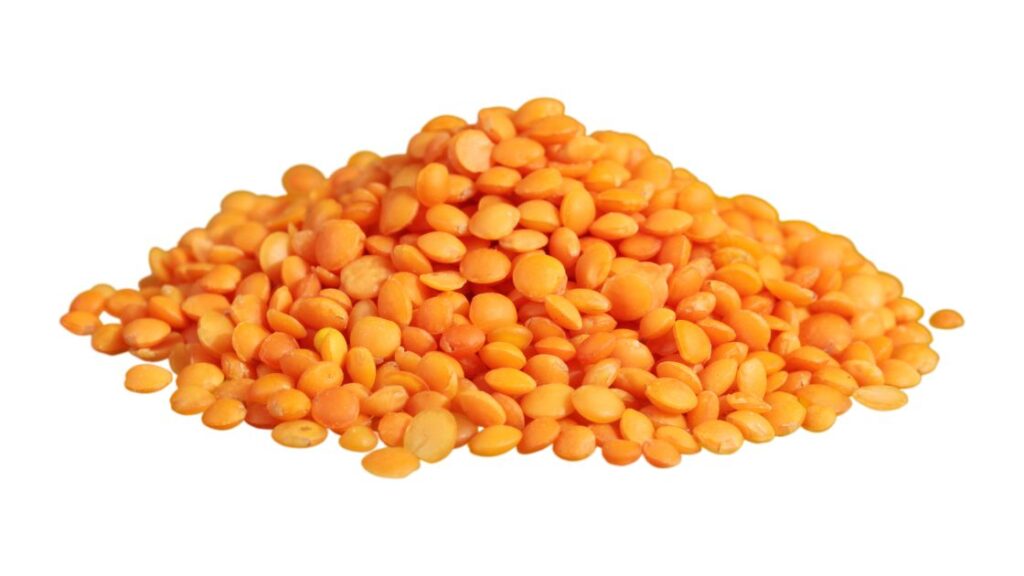
Red, green or brown, lentils make for a tasty side dish or soup. They are also high in fibre and protein so it is an excellent source of nutrition. Lentils can be cooked in many different ways – so there’s definitely something for everyone to enjoy! If you’re looking for a quick meal that is both nutritious and delicious, lentils are the perfect option with about 8 grams of protein per 100 grams.
Buckwheat
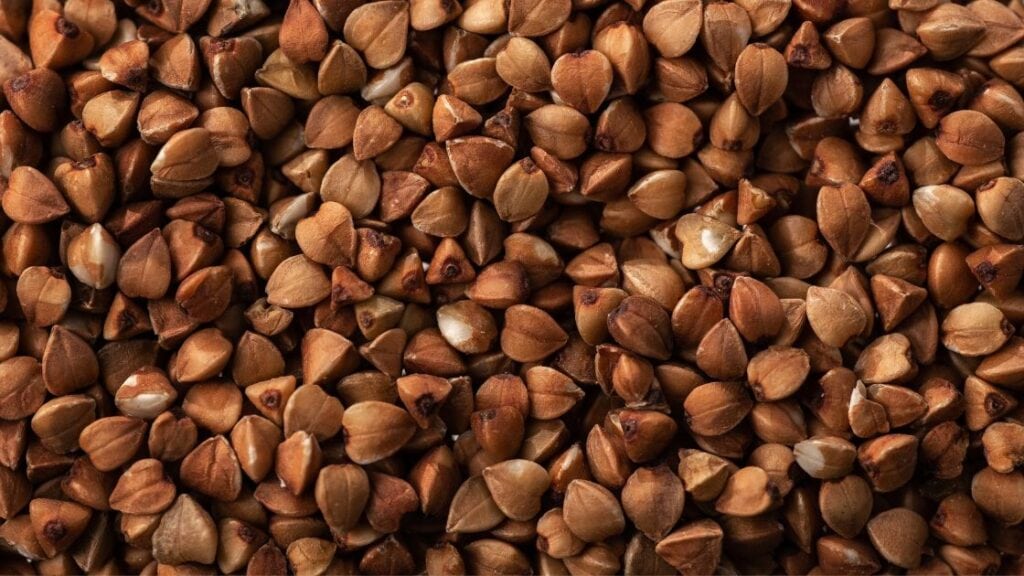
Buckwheat, also known as Kuttu, is another great source of protein, fibre, and other essential nutrients. It can be cooked in many different ways to make it more versatile and easy to use. It is also a good source of plant-based calcium. Did we mention that it is also gluten-free, with 5 grams per 100 grams?
Tofu / Edamame
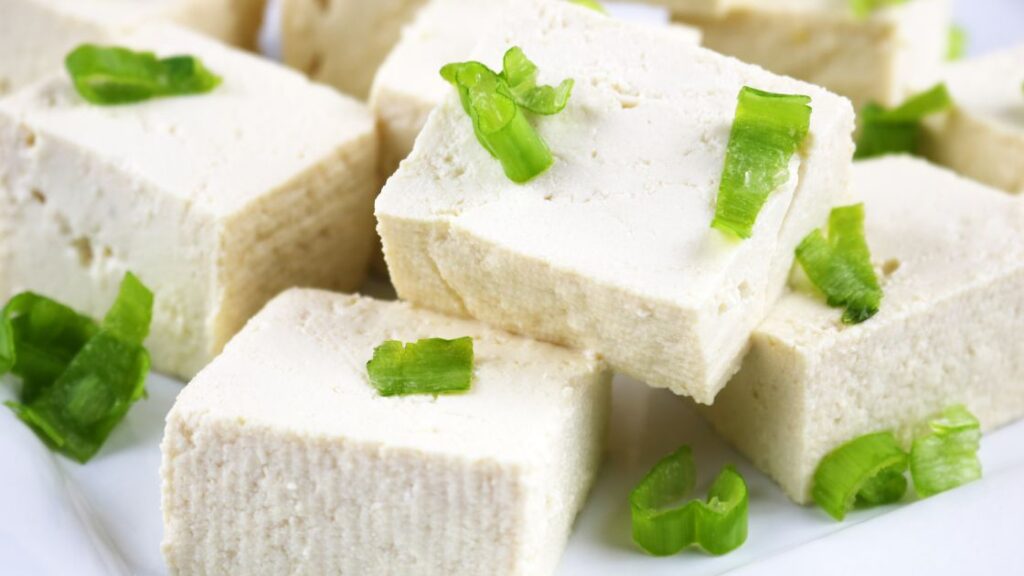
Tofu, edamame beans, nutritional yeast, and seitan are just a few of the plant protein sources that can be incorporated into a vegan diet. Tofu and edamame beans are great sources of plant-based protein while nutritional yeast provides essential vitamins and minerals that vegans often lack.
Tofu is often the first choice as a meat substitute and is incredibly versatile – with around 8 grams of protein per 100 grams.
Chickpeas and Green Peas
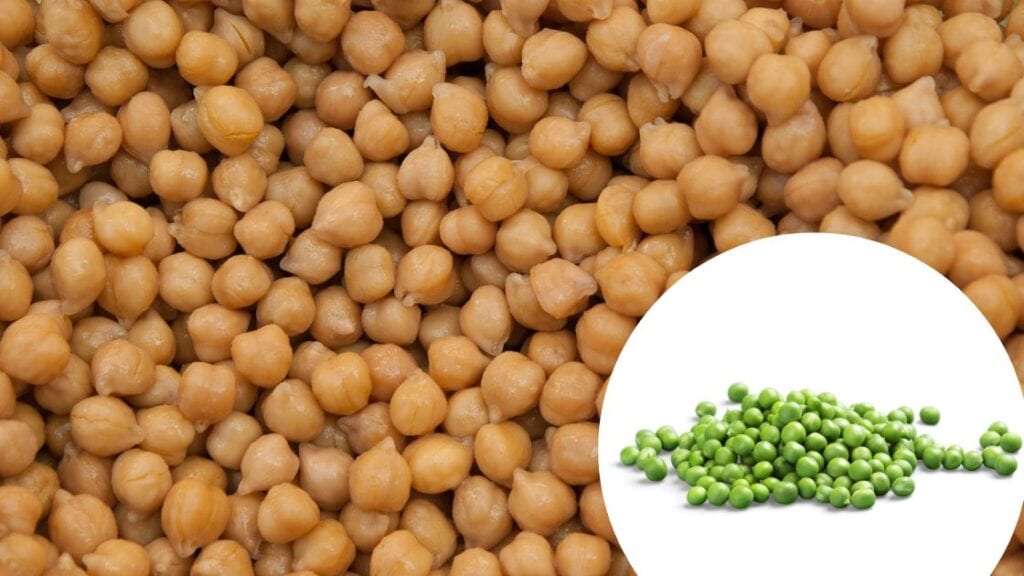
Chickpeas and green peas are fantastic sources of plant-based protein, fibre and vitamins. They make a great snack or addition to salads, soups or as main course dishes. In fact, you can prepare them in so many ways – who can resist a delicious hummus dip?
Make sure to include chickpeas and green peas in your diet on a regular basis – they’ll definitely help you feel fuller for longer periods of time and enjoy optimal health benefits along the way! Boiled chickpeas offer an impressive 9 grams of protein per 100 grams.
Nuts and Seeds
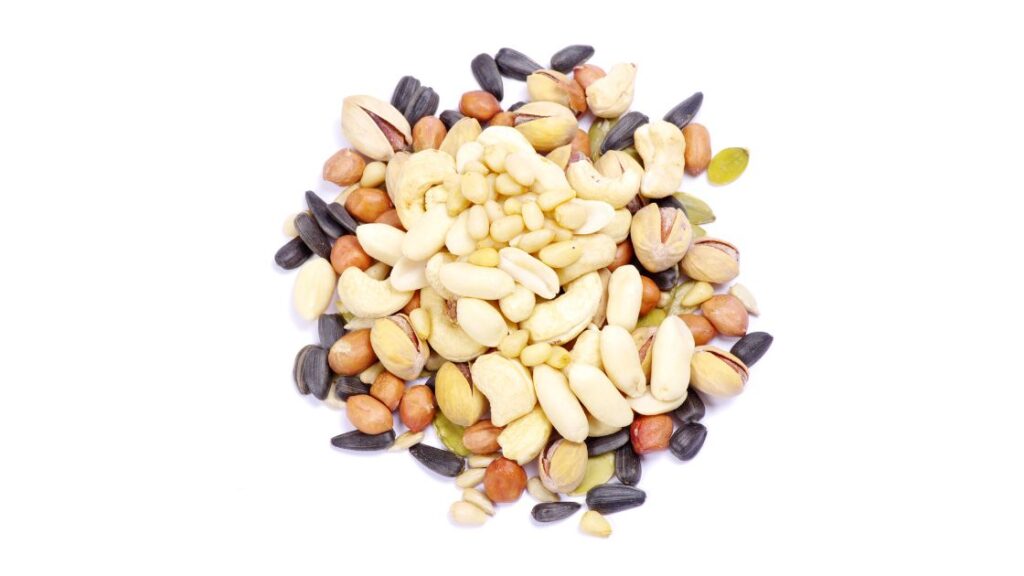
Nuts and seeds are chock-full of essential nutrients that help to keep you healthy, happy, and sated. Plant-based protein supplements that contain both nuts and seeds make the perfect source of nutrition for athletes, those looking to lose weight, or anyone who wants to boost their daily intake of protein.
At first glance, it might not sound like much, but just a handful of peanuts will deliver 5 grams of protein per serving.
Spirulina
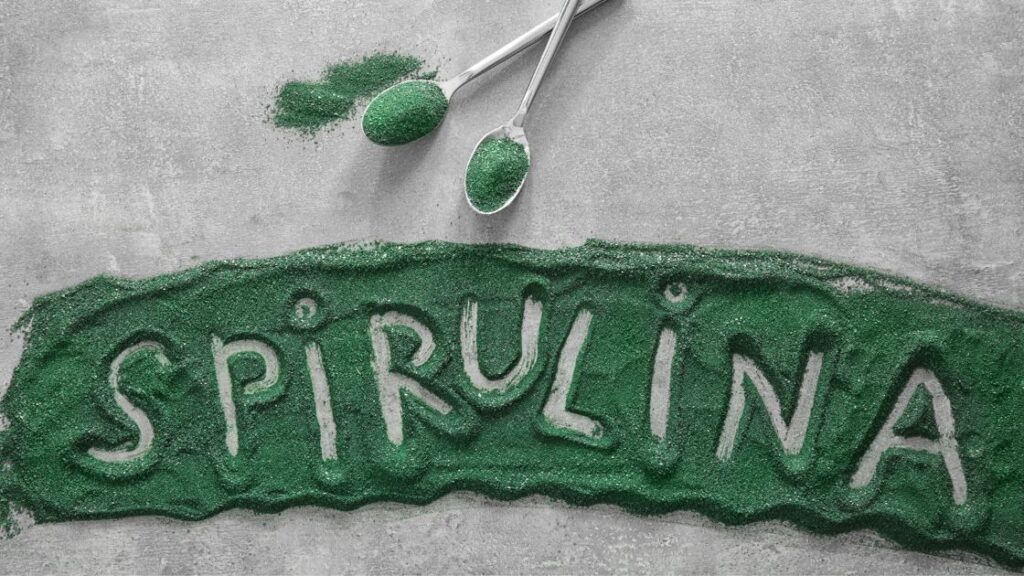
Spirulina is not just a great plant-based protein but also a superfood. It is low in calories and can be used to replace meat or other animal-based proteins in your diet. It contains all essential amino acids and a staggering 55% to 70% protein! Add some to your seeds or grains to boost your protein and amino acid intake.
Sorghum / Jowar
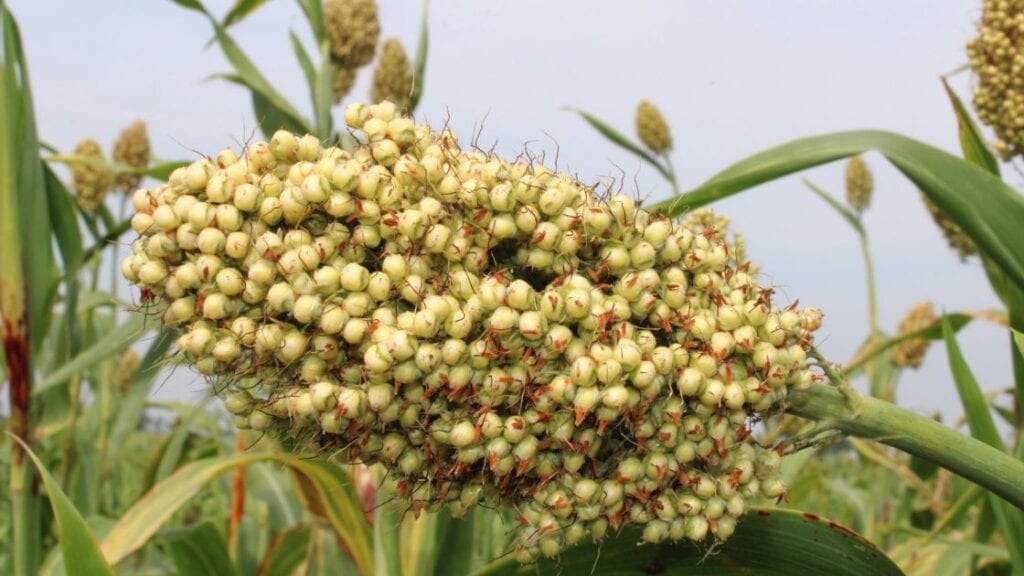
Sorghum (or Jowar, depending on where you are from) is a good source of iron, zinc, magnesium and B vitamins- all the essentials for a healthy lifestyle. It is one of the more “exotic” options on our list, with 11 grams of protein per 100 grams, and makes for yummy rotis or pancakes. This ancient grain is also gluten-free.
Soy Beans
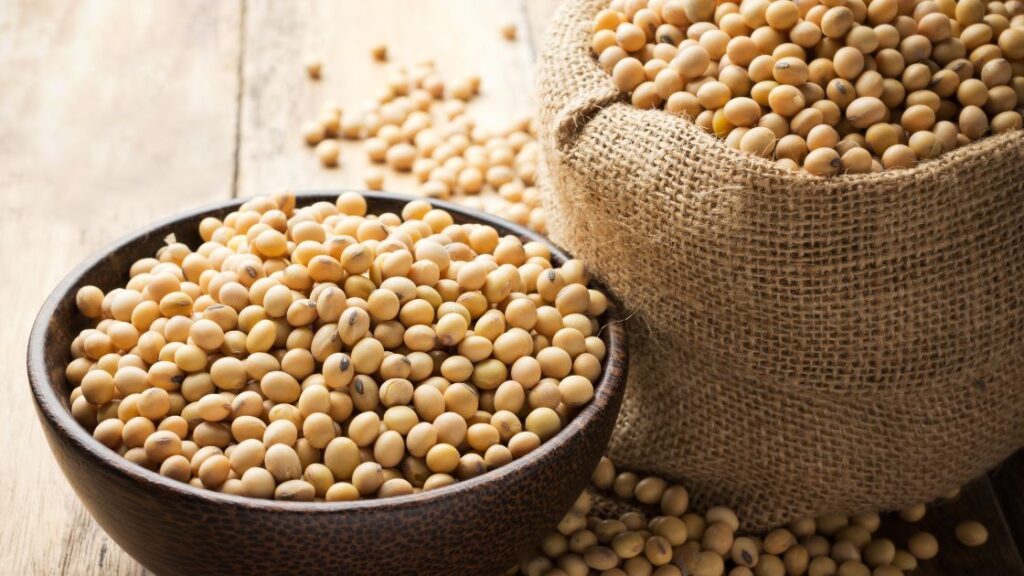
Soybeans are low in calories and high in fibre, making them an ideal choice for people looking to reduce their calorie intake. You can use soybeans as is or cook them up into soy milk or tofu. Soy is also a complete protein that makes for a versatile and tasty meat substitute. At 16 grams per 100 grams, it is one of the most protein-dense foods on our list.
Quinoa
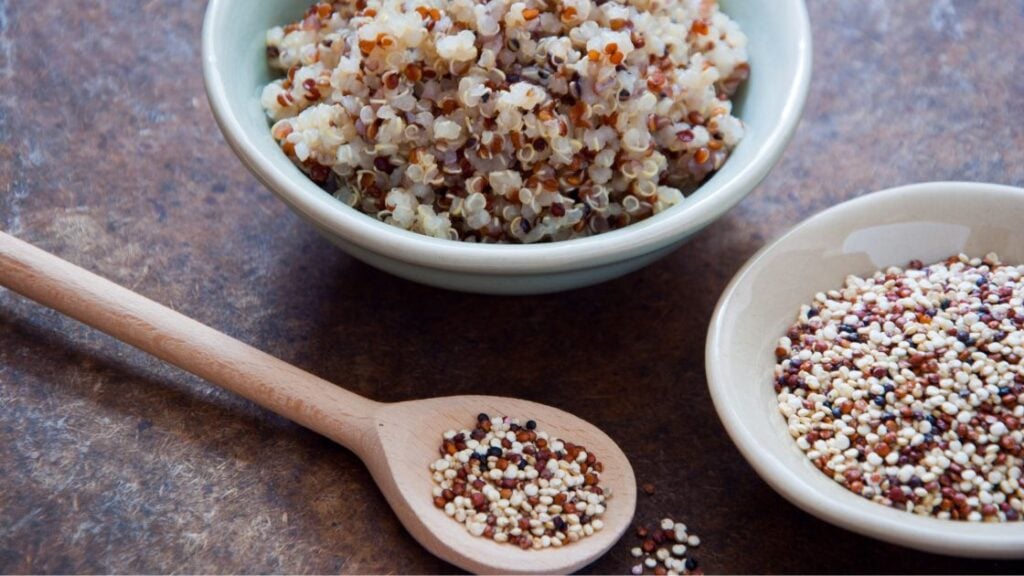
Quinoa is packed with complex carbs, fibre, and essential nutrients like magnesium, zinc and copper. You can eat it as a main meal, or use it in salads. Just make sure to cook it properly so that the quinoa doesn’t get mushy or dry out! The amount of protein per cup is about 8 grams.
Vegetables
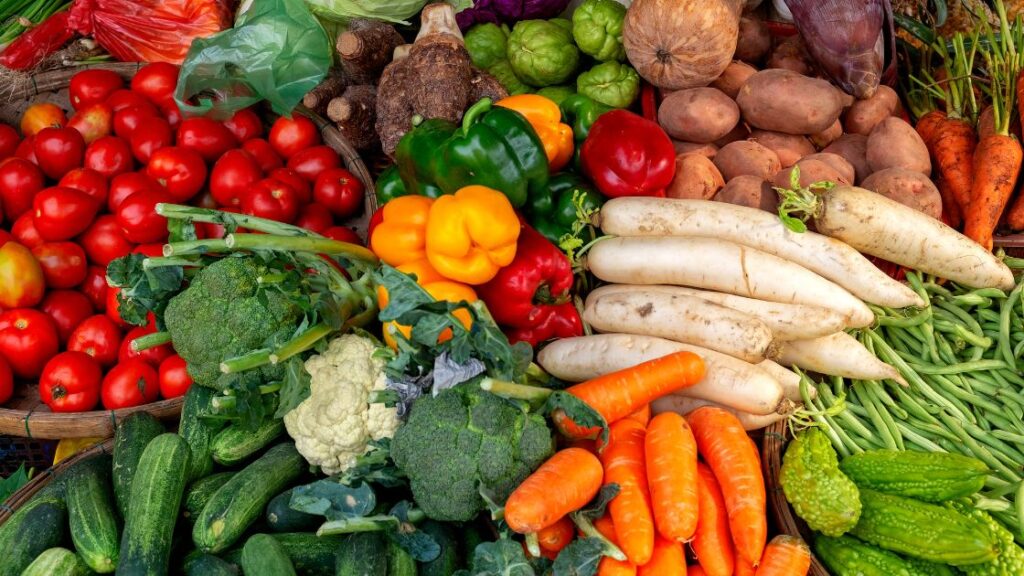
Our list would not be complete without adding some veggies into the mix! Yes, vegetables are often overlooked for their protein content in comparison to meat, but it doesn’t mean they don’t bring anything to the table, so to speak.
They make for a good supplement in combination with our other foods on this list. A coup of yellow sweet corn, for instance, offers 5 grams of protein, while broccoli has about 3 g of protein per 80 grams.
Pack a Punch With Plant-Based Protein
It doesn’t matter if you follow a vegetarian or vegan diet, you are likely looking for ways to ensure that you are getting enough protein. Our top 10 list of high-protein vegan food sources provides you with all the information you need to make an informed decision.
From plant-based sources to vegan meat substitutes, you are spoiled for choice – with a little bit of planning and creativity on your side.
If you want to join the vegan revolution, don’t be afraid that you will be missing the essentials your body needs. You can still enjoy great-tasting plant proteins without sacrificing your health.
